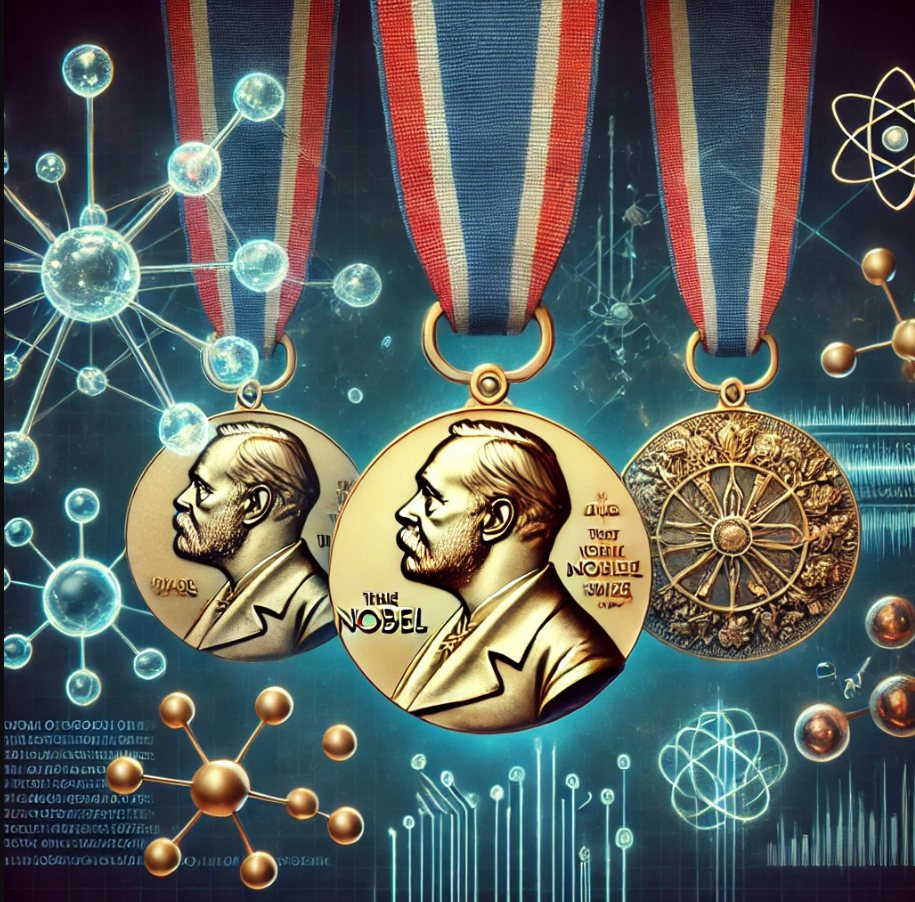AI and the Nobel Prizes: Breaking Barriers in Science - But Where’s the Prize for Computer Science?

When Alfred Nobel established the Nobel Prizes 🏆more than 120 years ago, he could never have imagined the revolutionary impact that artificial intelligence (AI) would have on science. Nobel, who was deeply invested in the fields of chemistry, physics, and literature, left behind a legacy that has rewarded world-changing discoveries in these areas. But could he have predicted that one day, machines would not only perform human tasks but also drive scientific breakthroughs at a pace unimaginable in his time?
This year's Nobel Prizes in Chemistry and Physics bring AI to the forefront, reminding us just how crucial this technology has become in accelerating scientific discovery. The fact that AI is now integral to Nobel-winning research shows just how much the landscape of innovation has evolved.
AI in Chemistry: Revolutionising Life Sciences

AlphaFold in Action
In an AI-powered first, half of the 2024 Nobel Prize in Chemistry has been awarded to Demis Hassabis and John M. Jumper of Google DeepMind for their development of AlphaFold, the groundbreaking AI system that can predict protein structures. Proteins are the building blocks of life, and understanding their structure is key to everything from drug discovery to the creation of new materials. Before AI stepped in, scientists could spend years cracking the code of just one protein's shape. AlphaFold has changed that entirely. 🧬
Thanks to AI, the entire landscape of biological research has shifted. By predicting the structures of proteins in a matter of hours, AlphaFold has opened doors to new vaccines, potential cures for diseases like cancer, and advances in biotechnology. Hassabis himself summed it up by saying, "AlphaFold has already been used by more than two million researchers to advance critical work, from enzyme design to drug discovery." 🔬
This level of progress would have been inconceivable even a decade ago. It's proof that AI is not just a tool—it's a transformative force driving scientific progress.
AI in Physics: A Foundation for Machine Learning

Neural Network
AI's presence is felt just as strongly in this year's Nobel Prize in Physics, where Geoffrey Hinton was honored for his pioneering work on neural networks, a key component of machine learning 🧠. Hinton's work from the 1980s is the foundation of today's most advanced AI technologies, from image recognition to self-learning systems.
Using principles from physics, Hinton developed methods that allow AI to learn and recognise patterns autonomously. These breakthroughs in neural networks have propelled AI into fields like quantum computing, where AI is helping researchers understand highly complex systems. It's a reminder that even the most fundamental branches of science are being transformed by AI's capabilities. 🤖
No Nobel Prize for AI—Yet

Tim Berners-Lee
Despite AI's incredible contributions to science, there is no Nobel Prize for Computer Science or AI. It's a striking omission, especially when you consider that AI is at the heart of so many innovations being recognized in other fields. If there were such a prize, Tim Berners-Lee would surely be at the top of the list. Berners-Lee primary achievement is the creation of the World Wide Web. His development of HTTP, HTML, and the first web browser opened the door to the modern internet as we know it. 🌐🌍
As AI continues to revolutionize everything from medicine to space exploration, it's hard not to imagine that one day it will get its own dedicated recognition on the Nobel stage. Perhaps we'll see the Nobel Committee create a prize for Computer Science or AI—fields that are now inseparable from the most significant advances in science and technology. 💡
AI's Impact: A New Era of Discovery
What's clear is that AI's role in scientific discovery is only growing. From unlocking the mysteries of the human body to advancing our understanding of the universe, AI is proving that it can tackle challenges previously thought impossible. While Alfred Nobel may not have been able to foresee this over a century ago, the world today is witnessing the dawn of a new era where work hand-in-hand to push the boundaries of what's possible. ⚙️🌌🧫
As we look at the future of AI and its potential, one thing is certain: whether or not it ever gets its own Nobel Prize, AI is here to change the world. The scientific breakthroughs celebrated this year are just the beginning. 🧪💻📡